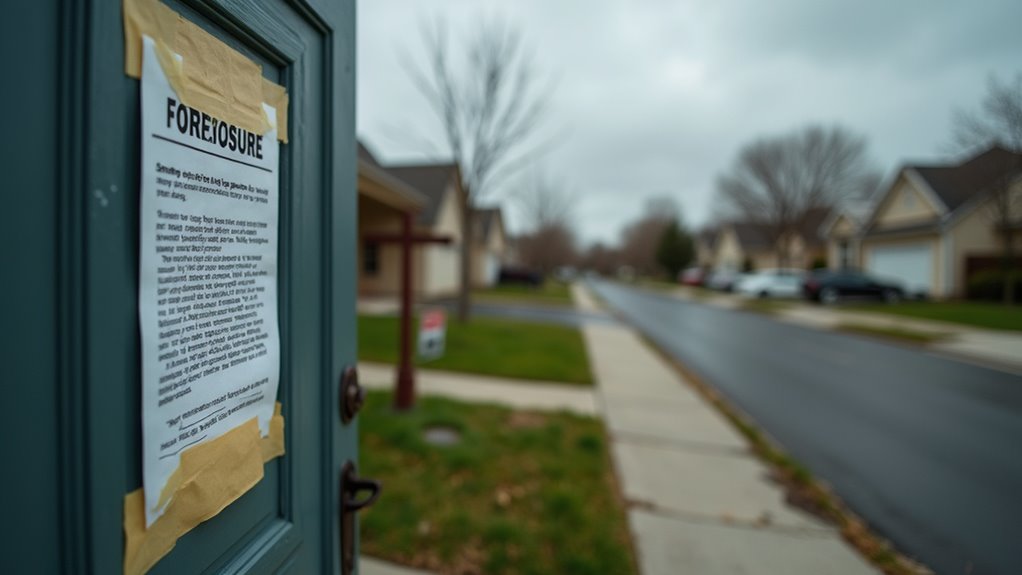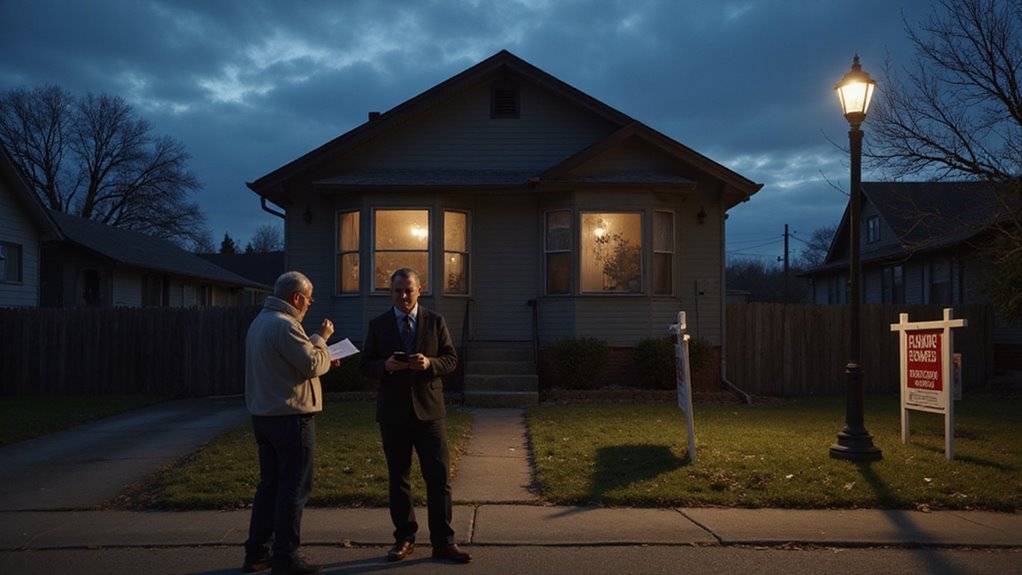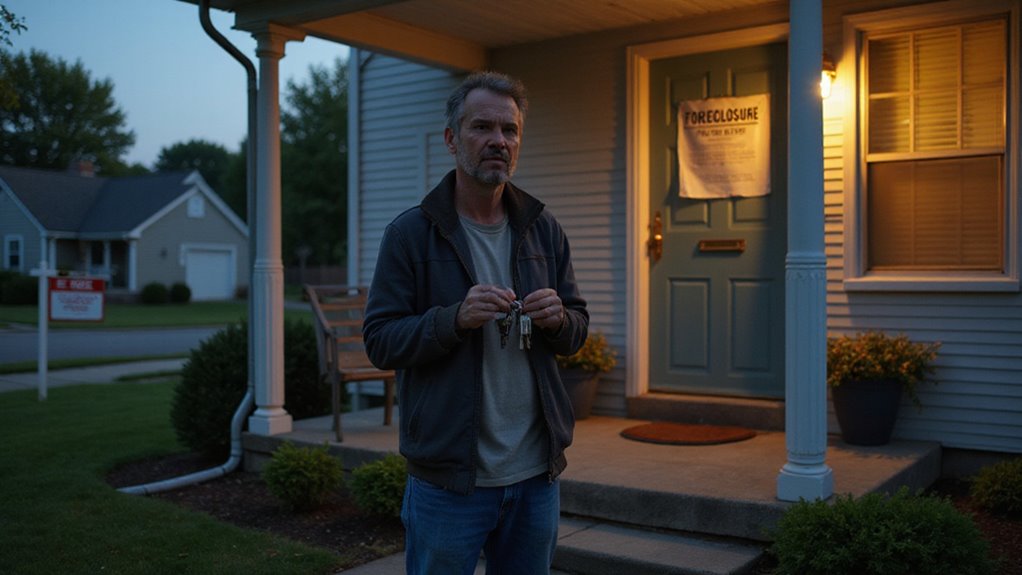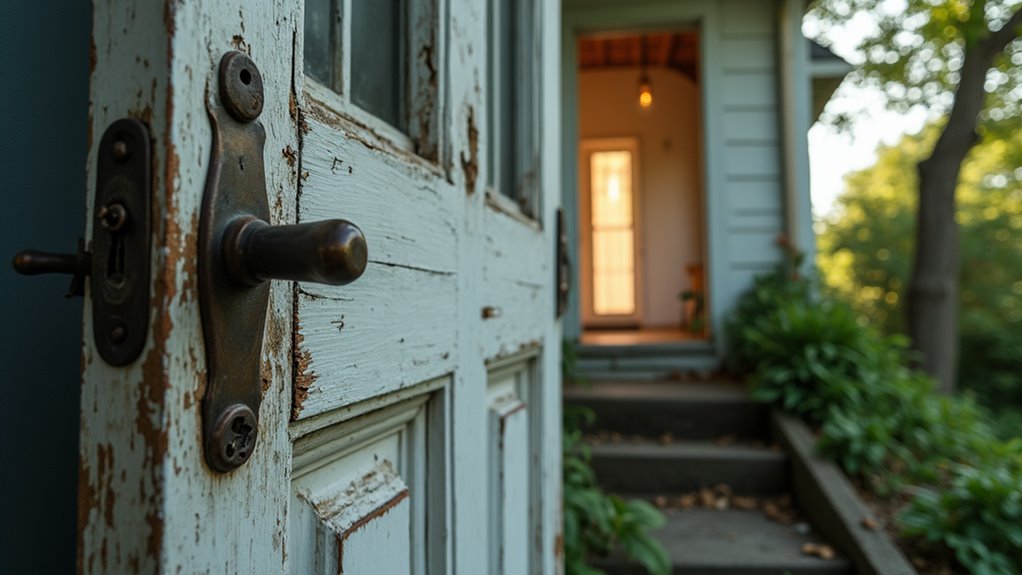Facing foreclosure feels like drowning while seeing the shore just beyond reach. Your home slips away, credit score plummets, and financial stability crumbles—all at once. Stress mounts as deadlines loom and options narrow. Fortunately, selling your house during foreclosure can provide an escape route that preserves your dignity and financial future.
You absolutely can sell your house during the foreclosure process, and it’s often a smart strategy. This approach helps reduce financial losses, protects your credit score, and gives you more control over the outcome than letting the foreclosure complete.
During a sale in foreclosure, you’ll need to act quickly. Communication with your lender becomes essential throughout this process. They may approve alternatives like short sales or deed-in-lieu arrangements.
Selling before the foreclosure finalizes offers multiple advantages. You typically keep more money from the transaction. Your credit suffers less damage than with a completed foreclosure. You maintain decision-making power rather than surrendering it to the bank.
The process requires understanding specific timelines in your state. Different stages of foreclosure affect your selling options differently. Legal requirements vary based on your location and loan type.
In this blog I will explore everything about selling during foreclosure, from timing to legal requirements.
Key Takeaways
- You can sell a house in pre-foreclosure with lender approval to avoid foreclosure and protect your credit.
- Selling during foreclosure requires legal ownership rights, proper documentation, and adherence to lender and state laws.
- Options include traditional sale, short sale, deed in lieu, or selling to cash buyers for quick relief.
- Acting early increases chances to recover equity, reduce credit damage, and explore alternatives before foreclosure finalization.
- Working with foreclosure attorneys and experienced professionals simplifies the process and ensures legal compliance.
What is Foreclosure and How Does It Impact a House Sale?

Foreclosure occurs when lenders repossess property after mortgage payments stop. It severely limits your selling options and financial control.
Pre-foreclosure means you’re behind on payments but still own your home.
Lenders must follow specific legal procedures before taking your property. During this time, you can explore alternatives. You might sell the house before auction or negotiate a short sale with your lender.
Acting early provides more options to protect your credit score. Quick action allows you to minimize financial damage and maintain some control.
Many homeowners successfully avoid foreclosure through timely sales or loan modifications.
Can You Legally Sell a House in Foreclosure?

Yes, you can legally sell your home during the pre-foreclosure period.
Your legal ownership rights remain intact until the court finalizes the foreclosure sale. You must obtain your lender’s approval first. A quick response to the foreclosure notice is essential.
The sale process differs from standard home sales. Your lender must agree to the terms since they’ve a financial claim on the property.
According to foreclosure laws, any sale proceeds must first satisfy the mortgage debt. In most cases, this approach helps homeowners avoid the credit damage of a completed foreclosure.
How to Sell a House in Pre-Foreclosure Stage?

You can sell your house during the pre-foreclosure stage, but timing is key to protect your equity and credit.
Make sure you have all necessary documents, like mortgage info and foreclosure notices, ready to go.
You’ll also need to get your lender’s approval, especially for short sales, before moving forward.
Timing Your Sale During Pre-Foreclosure
The best time to sell during pre-foreclosure is immediately after receiving your first missed payment notice.
Start the selling process within 30-90 days of default to maintain control over the sale. Most states allow 90-120 days before formal foreclosure proceedings begin.
List your home early to attract more buyers and potentially secure better offers.
This proactive approach preserves your credit score and equity position. Furthermore, early action gives you time to negotiate with lenders.
After considering your options, obtain written approval from your lender for any short sale arrangement.
Lender approval typically takes 30-60 days, so factor this into your timeline.
Meanwhile, gather all financial documents to streamline the process.
Required Documentation and Disclosures
Several key documents are necessary when selling a pre-foreclosure house. You must provide mortgage statements, payoff quotes, and all foreclosure notices to potential buyers.
State laws require specific foreclosure disclosures that vary by location. These documents create transparency and build trust with buyers.
Full disclosure helps satisfy legal requirements and protects you from future claims. Furthermore, proper documentation speeds up the sales process significantly. Most states mandate disclosure of the foreclosure status to any potential buyer before accepting offers.
As a result, gathering these materials early makes your transaction smoother and more efficient.
Working with Your Lender for Approval
To secure lender approval for your pre-foreclosure sale, communicate openly and submit a complete package. Show genuine financial hardship through documentation like income statements and expense records.
Lenders typically require proof that you can’t afford mortgage payments due to job loss, medical issues, or other financial setbacks. Present a fair market value offer from a qualified buyer.
Your cooperation matters – respond quickly to all lender requests. Documents must be submitted completely and accurately the first time.
Meanwhile, continue exploring all alternatives to foreclosure.
What Are Your Options for Selling a Foreclosed Home?
You have several options for selling a foreclosed home, but timing is key.
You can list it traditionally before the sale, pursue a short sale with lender approval, sell quickly to cash buyers, or transfer the deed in lieu of foreclosure.
Each choice has different requirements and impacts, so it’s important to understand your best move.
Traditional Real Estate Listing
Yes, you can sell a foreclosed home through traditional listing before auction, but you must work fast. Timing matters most when facing foreclosure.
Act quickly to meet all legal deadlines. Collect your foreclosure paperwork immediately. Obtain written permission from your lender to sell the property. Set a competitive price to attract serious buyers quickly.
This approach gives you more control over the selling process. Many homeowners prefer this option because they can help another family find a home while resolving their own financial situation.
The traditional listing also typically yields better financial outcomes than auction sales.
Short Sale Process
A short sale lets you sell your home for less than what you owe on your mortgage. You must get your lender’s approval first. This option often causes less damage to your credit score than foreclosure.
Your lender needs to agree because they’ll receive less money than you borrowed.
Most lenders require proof of financial hardship before approving a short sale. This process helps you avoid foreclosure while allowing the bank to recover some of their investment.
Additionally, buyers can purchase the property at below-market value.
However, short sales typically take longer to complete than standard home sales.
Selling to Cash Home Buyers
Cash home buyers provide quick sales for properties in distress. They purchase homes in as-is condition without inspections or repairs.
These investors typically close within 7-14 days and offer all-cash deals.
For best results, research multiple cash buyers in your area. Compare their offers carefully before making decisions. A legitimate buyer should present clear documentation and transparent terms.
Furthermore, cash sales eliminate realtor commissions and closing costs. This approach works well for homeowners facing foreclosure or needing immediate liquidity.
Cash buyers typically purchase homes for 70-80% of market value minus repair costs.
Deed in Lieu of Foreclosure
A deed in lieu of foreclosure transfers your property to the lender instead of going through foreclosure. This option settles your mortgage debt and prevents a public auction of your home.
The process works faster than traditional foreclosure and may cause less damage to your credit.
You might still face a deficiency judgment if your home’s value doesn’t cover the full loan balance. This legal option requires careful consideration of your financial situation.
Lenders may not accept this solution if you have multiple liens on the property.
Many homeowners find this alternative less stressful than foreclosure.
Before proceeding, consult with a housing counselor about potential tax implications.
How Much Money Can You Keep After Selling?
You can keep money left over after paying off your mortgage and liens from a foreclosed property sale. The exact amount varies by situation. Your remaining funds depend on the outstanding mortgage balance, sale price, and any secondary debts attached to the property.
First, all proceeds go to satisfy the primary mortgage. Then payments flow to any secondary lienholders. These might include second mortgages or tax authorities.
Additionally, you’ll need to consider closing costs and fees.
Tax consequences may arise if the sale creates insufficient funds or surplus money. In many cases, you might keep very little after all debts are settled. However, maximizing your sale price offers the best chance to retain some funds.
What Are the Benefits of Selling Before Foreclosure Completes?
Selling before foreclosure offers several important advantages. You preserve more of your home’s value instead of losing it to bank fees. Your credit score suffers less damage compared to a completed foreclosure.
You maintain control over the sale process and can select your preferred buyer. Most importantly, you may recover remaining equity in your property after paying off the mortgage. This financial cushion can help with relocation costs.
Furthermore, you avoid the risk of deficiency judgments where lenders pursue you for remaining balances. Early action provides peace of mind during this difficult situation.
The sooner you decide, the more options remain available.
How Can Shawn Buys Houses Help With Your Foreclosure Situation?
Shawn Buys Houses offers four key services during foreclosure. We connect you with specialized foreclosure attorneys who provide legal guidance.
Our team develops prevention strategies and selling options after you receive a notice of default. For homeowners needing immediate relief, we make fast cash offers to help you avoid court proceedings.
Additionally, we support alternative solutions like short sales or deed-in-lieu arrangements.
Furthermore, we approach each situation with compassion. Our quick solutions aim to reduce your stress during this difficult time. Many homeowners find our straightforward process helps them move forward faster.
Ready to Sell Your Foreclosure Property? Contact Shawn Buys Houses Today!
Yes, you can sell your foreclosure property to Shawn Buys Houses right now.
We connect homeowners with cash buyers who purchase distressed properties quickly. Our team provides honest solutions to help you avoid financial loss during foreclosure.
We serve homeowners by creating simple paths forward. Your foreclosure situation doesn’t have to cause unnecessary stress or complications.
In most cases, we can complete the entire sales process within 7-14 days.
Furthermore, our service helps you move on with dignity. We handle all paperwork and negotiations on your behalf.
Contact us today to discuss your options and receive a fair cash offer.
Frequently Asked Questions
Can I Sell My House After the Foreclosure Auction Has Occurred?
After the foreclosure auction, you generally can’t sell the house unless you buy it back or negotiate a post-sale agreement. Your best move is to consult with an attorney or real estate professional for personalized options.
What Happens if I Sell My House for Less Than Owed on the Mortgage?
If you sell your house for less than owed, you’re responsible for paying the remaining mortgage balance, known as a deficiency. You can negotiate with your lender or investigate options like a short sale to minimize your debt.
Are There Any Penalties for Selling During the Foreclosure Process?
You typically won’t face penalties for selling during foreclosure if you follow legal procedures, notify your lender, and get necessary approvals. Acting promptly helps you avoid additional fees, legal issues, or damaging your credit further.
How Does a Short Sale Affect My Credit Score Long-Term?
Consider your credit score as a fragile garden; a short sale may temporarily wilt it, but with care and time, it can bloom again. You’re helping others move forward by choosing this compassionate, responsible path.
Can I Buy Back My House After It’s Been Foreclosed?
Yes, you can buy back your foreclosed house through redemption periods or by negotiating with the lender, but it depends on state laws and whether the property is still available. Act quickly to investigate your options.

